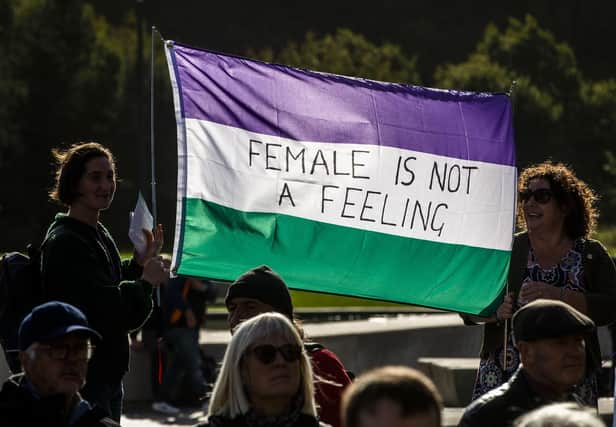Gender Recognition Reform (Scotland) Bill: MSPs must ensure it does not change a person’s sex under Equality Act – Maya Forstater


The case focused on a fairly obscure law about the proportion of men and women on public boards, but concerned the broad definition of sex in particular in relation to the Equality Act 2010.
Aidan O’Neill KC, representing FWS, highlighted the “absurdities” that flow from the assertion, made by both the Scottish Government and the Equality and Human Rights Commission (EHRC), that when a man obtains a piece of paper from the UK Government which states that he is female, he must be treated for all legal purposes as if had been born female.
Advertisement
Hide AdAdvertisement
Hide AdThe Scottish Government and the equalities watchdog argued at first that this even applies in relation to laws on pregnancy and maternity, fertility treatment, surrogacy and abortion. Then they appeared to change their mind. O’Neill accused them of taking a “pick and mix” approach.
He also highlighted the damaging message sent to unhappy young women seeking hormone treatment and legal sex change in ever-growing numbers. The Scottish Government’s interpretation of the law suggests they can escape sex discrimination with a piece of paper. He called this “a pernicious fantasy”. We at Sex Matters agree.
The law in this area is a mess and those whose job it is to bring clarity have failed to do so. That is why we have tabled a petition calling on the UK Parliament to clarify the relationship between the Gender Recognition Act and the Equality Act by specifying that “sex” means biological sex and not "sex as modified by a Gender Recognition Certificate”. The Equality Act already separately protects trans people from discrimination.
If 100,000 people sign, there will be a debate in Westminster. The constituencies with the greatest numbers of signatures are all in Scotland: Edinburgh North and Leith, Edinburgh South and Edinburgh East. In terms of percentage of the electorate, the highest is Na h-Eileanan an Iar.
This is almost certainly because the Scottish Government is racing to push through reforms before Christmas that will mean any man resident in Scotland can sign a piece of paper which states he is a woman in law. And we don’t know what the legal implications of this are.
Tomorrow, MSPs will debate amendments that seek to clarify this. Because the proposed Scottish GRA will be given out to such a different group of people to the UK one, the EHRC recommended amendments to say it will have no effect on the definition of sex and of the words, man and woman, in the Equality Act.
The amendment by Foysol Choudhury comes closest to this, whereas the amendment by Pam Duncan-Glancy is unlikely to work. Barrister Amanda Jones, writing in Scottish Legal News, agrees that it is not specific enough.
Our petition for secondary legislation, and FWS’s quest for a legal judgment are two ways of trying to sort out the mess of the relationship between the existing GRA and the Equality Act, but law-makers should not make such opaque laws in the first place. There should be clarity about the Gender Recognition Reform (Scotland) Bill that it does not change a person’s sex under the Equality Act. We hope MSPs agree.
Maya Forstater is executive director of Sex Matters
Comments
Want to join the conversation? Please or to comment on this article.